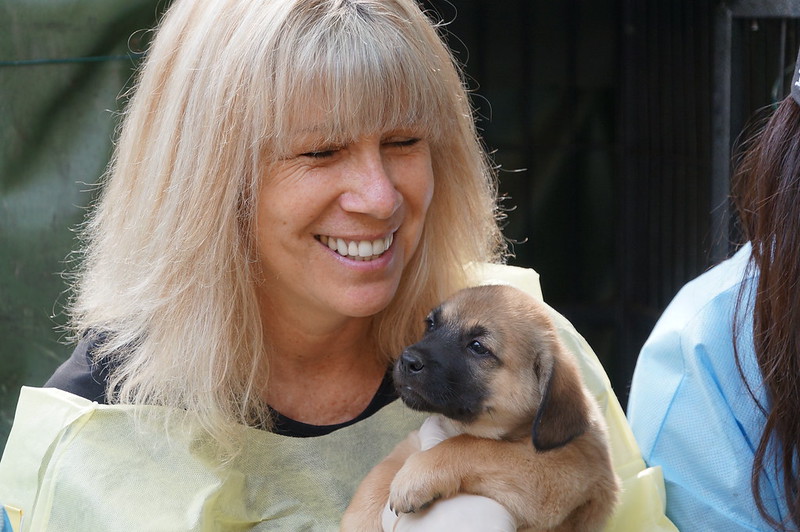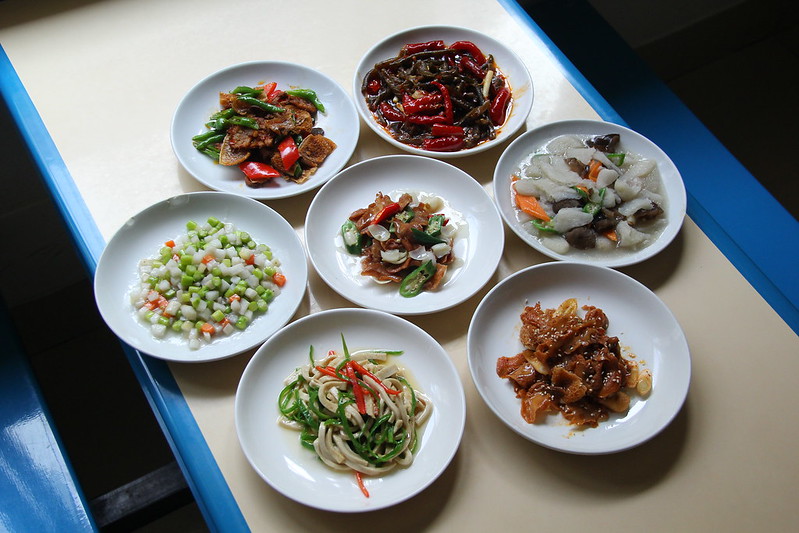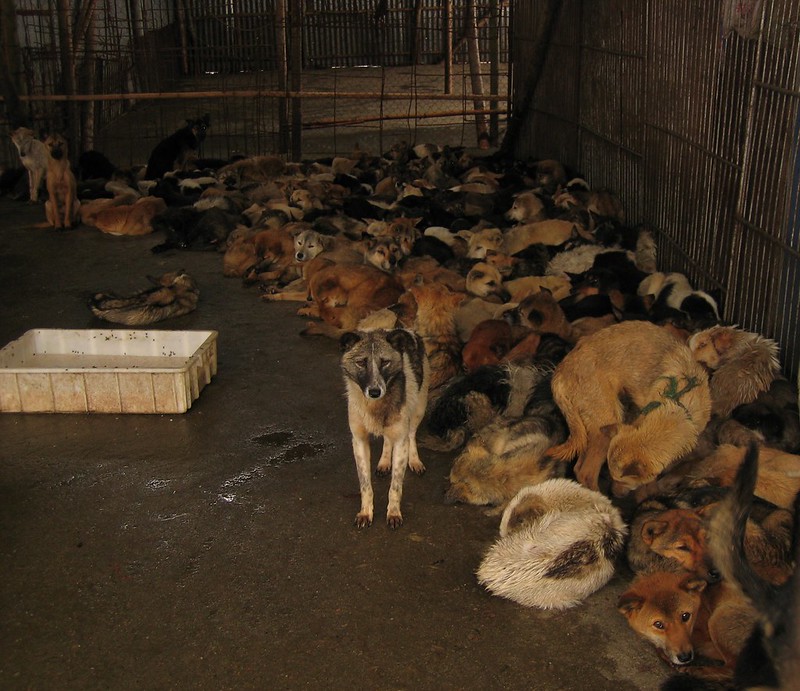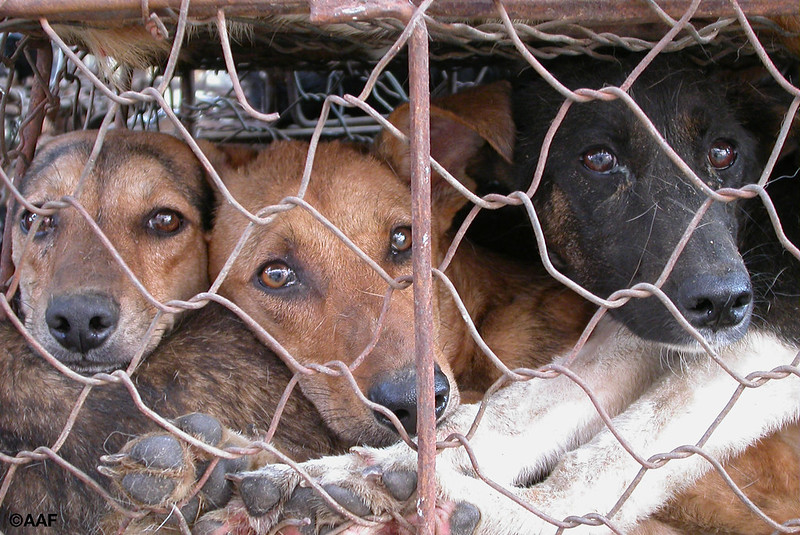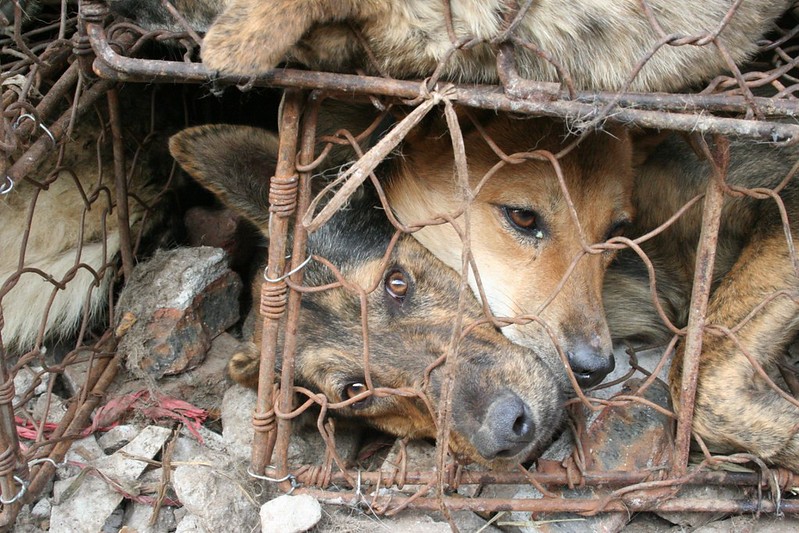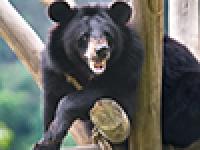Dog meat, Yulin and veganism: is there a double standard?
14 June 2018, 12:18PM
As the summer solstice brings world media attention back to China’s Yulin city for another cycle of dog meat industry coverage, some familiar debates will resume.
Many voices will argue that those who oppose the dog meat trade must also oppose all meat eating, or risk being labelled speciesist or hypocritical.
While some dismiss this argument as being like criticising the police for not putting out fires, it does also raise legitimate and interesting points which are very much worth considering.
While I’m happy to say I live a cruelty-free vegan lifestyle today, I haven’t always, and wasn’t born or raised vegan, but made a lifestyle choice over quite a number of years.
During these years I was deeply engaged in animal welfare: opposing the fur industry, bear bile farming and the dog meat trade among many other causes.
My engagement with these causes led me to found Animals Asia and our campaigning improved the lives of thousands of animals – from hundreds of bears rescued from the bile industry, to reduced demand for dog meat and the improved living conditions of animals in captivity.
But again, for much of that time, I was not yet fully vegan.
Does that negate the positive effect my work had? I don’t believe so.
While today I do wish I had become vegan much sooner, through my increasing connection with, and compassion for dogs, cats, bears and other animals, I came to question all my lifestyle choices and the impact my personal footprint had on this Earth.
My opposition to fur led me to question my purchases of leather. My work to end bear bile “factory” farming led me to delve more deeply into the production of milk, eggs and cheese. And my efforts to stop the brutal dog meat industry forced me to look again at wider farming practices around the world.
What I learned convinced me that there is no humane way to use animals for consumption and their parts.
I believe that every animal is an individual and every single one has the capacity to feel fear and to suffer. Each one exists for their own sake and has only one life which they value as much as we value ours. Today science is increasingly weighing in on the emotional intelligence of animals – and of the propensity of so many species to suffer that were previously denied this rather obvious fact in the past.
To me, this debate surrounds the right of “one life” – and my belief that I have no right to take that one life away.
This is how I personally arrived at the decision to live a cruelty-free, vegan lifestyle and millions of people all over the world are on a similar journey.
I would never tell a friend who had recently decided to adopt a vegetarian diet that their latest step wasn’t enough and criticise them for not being vegan. This is a journey for us all where decisions are made based on individual peace of mind – and even starting a path of vegetarianism, or going vegan for one day a week, will see only progress for the health of our planet and the animals living alongside us.
Working with Animals Asia, I have found that opposing the dog meat trade is very often a gateway to greater animal welfare awareness.
This is because the brutality, cruelty, health risks, moral outrage and social unrest caused by the dog and cat meat industries are more public and pronounced than other meat trades.
So often the dogs eaten in China and Vietnam are stolen companion animals snatched in the night from unsuspecting homes. These callous thefts lead to violence and even murder.
Dog meat traders resort to stealing animals because dogs can’t be easily farmed. The cost of feeding and housing dogs isn’t cost-effective and, as farms grow, so too does the risk of fighting and disease – creating yet more welfare issues.
Stolen companions and snatched strays are transported in illegal and abusive conditions, which lead many to die on the journey. They are very rarely vaccinated and traders have often been caught using poison darts meaning each animal could be harbouring rabies or poisoned meat – which then finds itself in the human food chain.
Finally there is the brutal way the dogs’ lives are ended – electrocuted, bludgeoned or bled out. The extreme animal abuse involved is something that cannot be excused at any level.
While such horrific cruelty to dogs is so often the beginning of the journey, once the connection has been made to a species often considered our very best friend, many will extend their compassion to other animals who clearly share physical, psychological and emotional similarities to dogs.
If we can empathise with dogs and agree that they suffer horribly and have no wish to die for the meat trade, then we must also question the welfare of cows, pigs, chickens or any other animal slaughtered or exploited for human uses.
Perhaps Hippocrates had the right stance when he said: "Make a habit of two things: to help; or at least to do no harm."
Recent Posts
Festive fun at our sanctuaries
December 19, 2024
